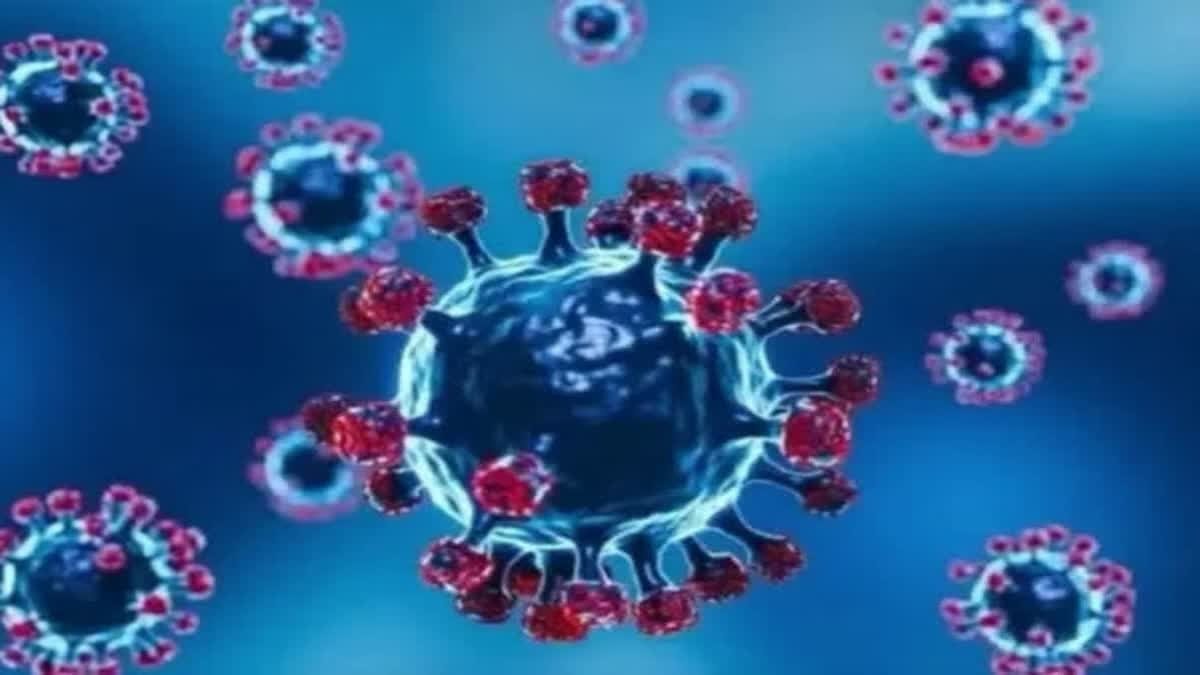New Delhi: A recent global study on COVID-19 has found that the SARS-CoV-2 virus increases the risk of heart attacks, strokes, and even death long after infection. Published in the American Heart Association’s journal Arteriosclerosis, Thrombosis and Vascular Biology, the study reveals that individuals who contracted any form of COVID-19 in 2020 faced twice the risk of experiencing a major cardiac event--such as a heart attack, stroke, or death--within three years compared to those who were not infected.
The report’s authors and researchers analysed data from the UK Biobank, which included over 8,000 adults who tested positive for COVID-19 in 2020, along with around 2,000 individuals whose cases required hospitalisation. Results were compared with nearly 220,000 adults in the database, who were not diagnosed with COVID-19 during that time.
“The study reveals that COVID-19 considerably elevates the long-term risk of major adverse cardiac events (MACE), including heart attacks, strokes and even death. These risks extend far beyond the acute phase of infection, impacting individuals regardless of their previous cardiovascular health. This underscores the virus’s capacity to inflict enduring harm, particularly by heightening the risk of thrombotic complications,” said Dr Tamorish Kole, Chair, of the Clinical Practice Committee of the International Federation for Emergency Medicine while speaking with ETV Bharat.
The genetic findings, notably the interaction between ABO blood type and increased vulnerability among non-O blood types, offer a more refined understanding of who may be most susceptible to these long-term effects, he said. As per the study, people whose infections were severe enough to warrant hospitalisation faced nearly a four times greater risk of a major cardiac event or death than the uninfected group.
According to Dr Kole, the danger prevails for India, too. “Despite India’s significant progress in vaccinating its population, the threat likely endures. While vaccines lessen the severity of acute COVID-19 and offer some protection against serious complications, the study indicates that the risk of long-term cardiovascular issues remains elevated post-infection. Vaccination may reduce the severity of the virus but may not fully eliminate the prolonged risk of cardiac events,” he said.
Dr Kole said that vaccinated individuals enjoy stronger protection against severe COVID-19, likely lowering their risk of post-infection complications, including heart conditions. However, the study highlights that it is severe COVID-19, especially cases requiring hospitalisation, that significantly heightens the risk of major adverse cardiac events (MACE).
“As vaccinated individuals are less prone to severe illness or hospitalisation, they may face a reduced risk of developing long-term cardiovascular issues compared to those who remain unvaccinated,” said Dr Kole.
Talking to this correspondent, Dr VK Paul, member (health) Niti Aayog, said that people in India have already got virus protection measures following large-scale vaccination. “The vaccine administered to crores of our countrymen is capable enough to give them proper protection. A person has more capability to fight against COVID-19 and its variants in comparison to the unvaccinated people,” said Dr Paul.
The latest bulletin of INSACOG has said it has been continuing the surveillance of the emerging variants of COVID-19. “So far, 112 cases of KP.1.1 (includes KP.1.1, KP.1.1.1) and 353 cases of KP.2 (includes KP.2, KP.2.1, KP.2.2, KP.2.3) have been reported from states of Maharashtra, West Bengal, Gujarat, Rajasthan, Goa, Uttarakhand, Odisha, Uttar Pradesh, Karnataka, Haryana, Delhi and Madhya Pradesh. However, no increase in disease severity or hospitalisation has been observed with these sub-variants so far,” the INSACOG said. The Indian SARS-CoV-2 Genomic Consortium (INSACOG) is a forum set up by the Central government in 2020 to study and monitor genome sequencing and virus variation of circulating strains of COVID-19 in India.



